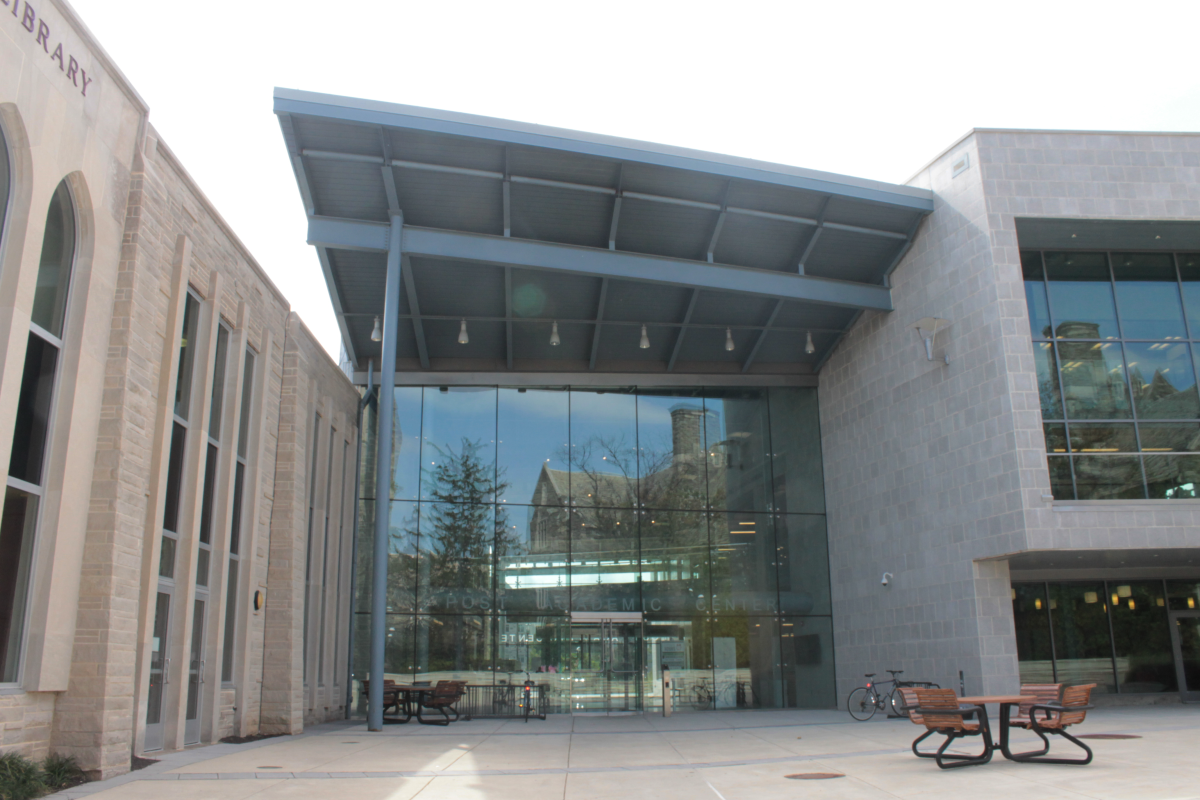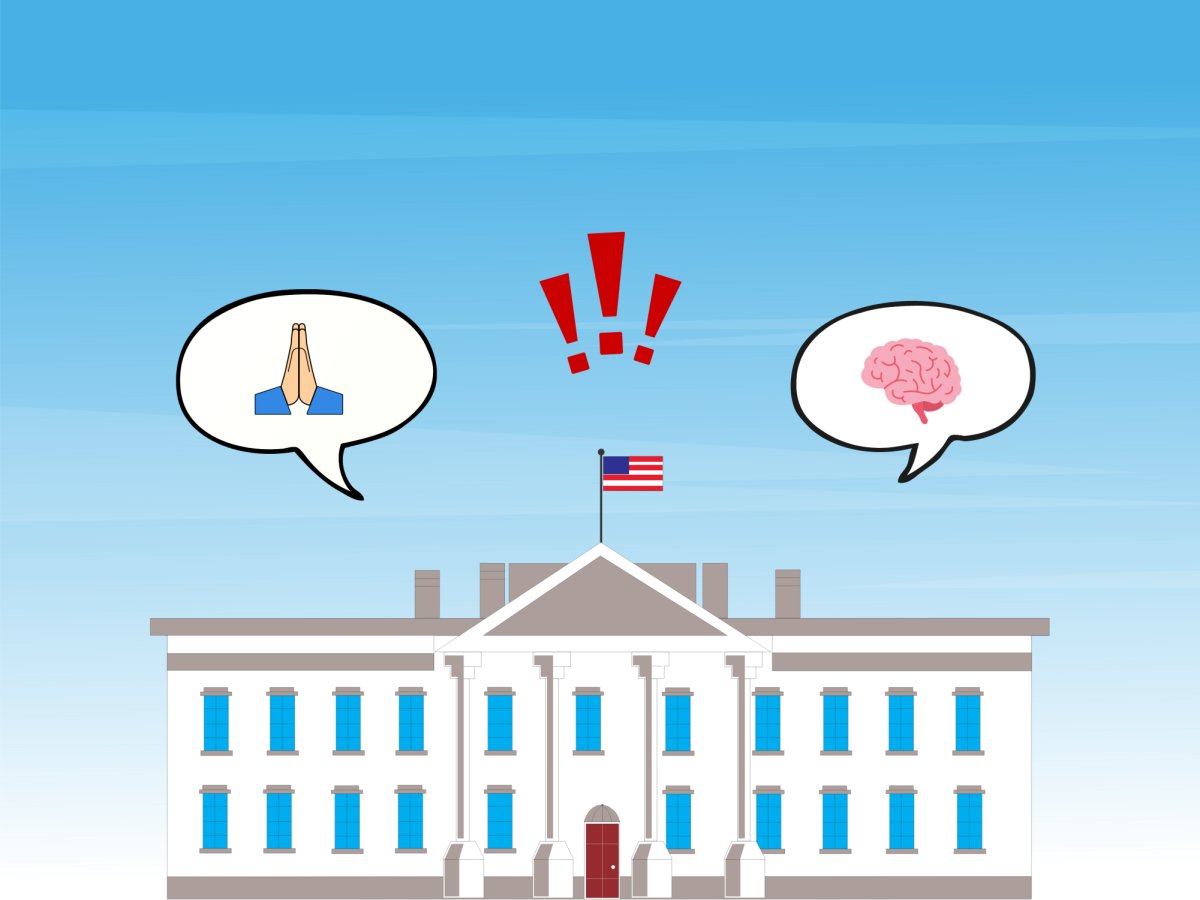The necessity of perspective on Hawk Hill
Julian Lutz ’19
From the moment your undercharged iPhone starts to beep at 7 a.m., you know it’s going to be one of those days.
You’re in a state of constant motion from the time the sun rises over Center City to when it sets behind the Chapel of Saint Joseph. You cut breakfast short and sprint to your 9:05 a.m. class, then your 11:15 a.m., then your 1:25 p.m. You sweat, because for the first four weeks of every school year, it seems like Hawk Hill is significantly closer to the sun. You also sweat with worry, because you stayed up late last night and have little studying to show for it.
It’s stressful. It’s a grind. It’s terrible. Or is it?
See, we’re always in charge of what meaning we draw from our experiences. And when it comes to life on Hawk Hill, or at any college, there’s a lot to be grateful for lurking just behind the stress.
Granted, it will always be hard to slog out of bed for an 8 a.m. But still, it’s a slog worth it. College is an economically wise decision. In a July 2016 article, The Washington Post notes that out of the 11.6 million jobs created in America since the Great Recession ended,
“11.5 million went to those with at least some college experience.” Jobs in the manufacturing and construction industries have not recovered from the hit they took in the Great Recession, The Post notes. Similarly, a Georgetown study projected that, by 2020, 65 percent of new jobs will require at least some post-secondary education.
Considering the increasing importance of college education, we should consider ourselves lucky. Most Americans don’t go to college at all. In 2015, the U.S. Census Bureau found that only 32 percent of Americans over the age of 25 have a bachelor’s degree. For some in that remaining 68 percent, that’s not a problem; they’re perfectly happy, and do very well economically. However, for an unmeasured number of young Americans, a bachelor’s degree is never even an option. Ever-increasing costs keep many out of college, or force them to leave early, as does the immediate need to help support one’s family financially. These college affordability issues are so prevalent that they’re currently being played out in the 2016 presidential election. For us, it’s important to remember that the college life we sometimes curse is one many Americans don’t have the chance to experience.
Of course, when we’re feeling overwhelmed with school, statistics don’t comfort us. Instead, we need to look at our own lives. I came to appreciate my education while working in the back end, as well as in the beer department, of a grocery store. Customers and coworkers would often remind me to work hard in school and tell me that I was “doing the right thing.”
Was I? There’s no shame in a job that doesn’t demand a college degree. I was raised on the belief that a person who loves their job, or who does it with care and focus, deserves enormous respect. So when those customers gave me unsolicited praise, I was confused. Neither being in college nor working was inherently “good” or “bad.” But of course, my perspective is only my perspective. My customers and co-workers made me appreciate my chance at college from a fresh angle.
Really, though, they didn’t need to tell me to be grateful. Life in the store could be grating. I didn’t want to be one of those pouting, spoiled teenagers who customers complain about. But at some point, the store made me realize how much I enjoy my academic life.
See, it’s a question of alternatives: There’s no way to avoid the sacrifice of time or the stress felt from adulthood. If we’re not waking up early for class, we’ll soon be waking up early to work eight-hour days. After spending substantial time grinding hamburger meat and selling cases of beer, things like reading, thinking, and cultivating my interests all day feel like a privilege. At least for me, it’s the right place to be.
There are several reasons to be grateful for our education: College is a sound economic investment in our own futures; not everyone who dreams of attending a four-year university gets to; many of us, considering the alternatives, would probably rather be here than somewhere (and for many Hawks, anywhere) else.
So the next time you start nodding off in “Club Lib”, or you can’t seem to care what the professor is talking about, or you wonder why you’re here at all, take a moment to put it all in perspective.
Then refill your coffee, look around, breathe, and keep going.












































